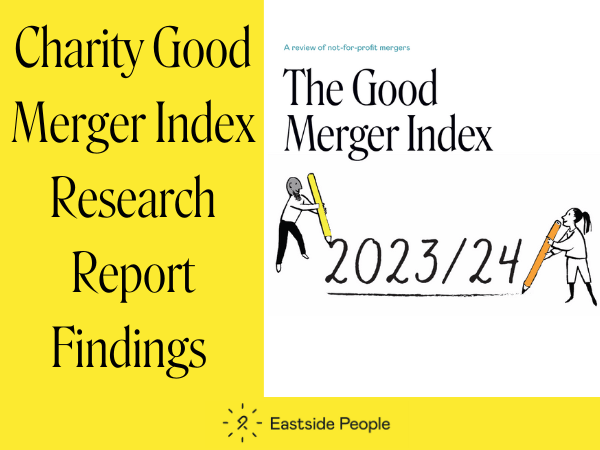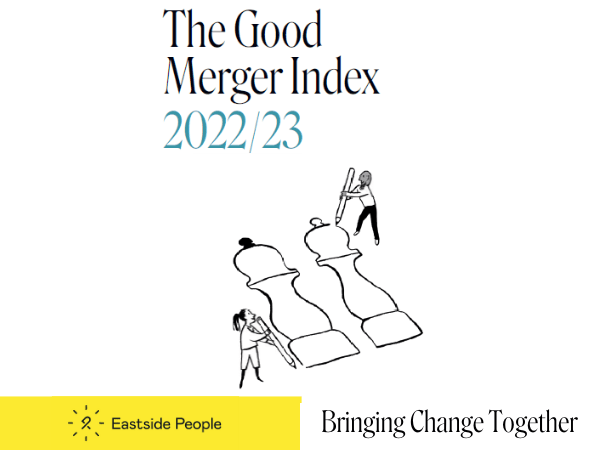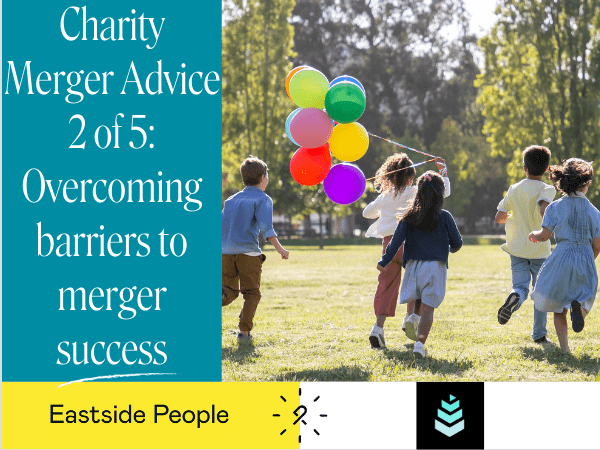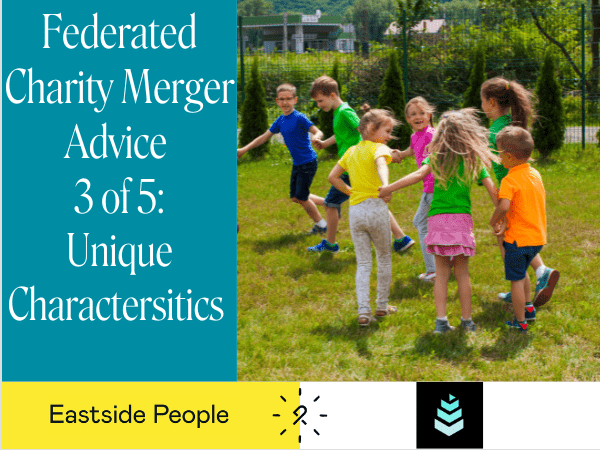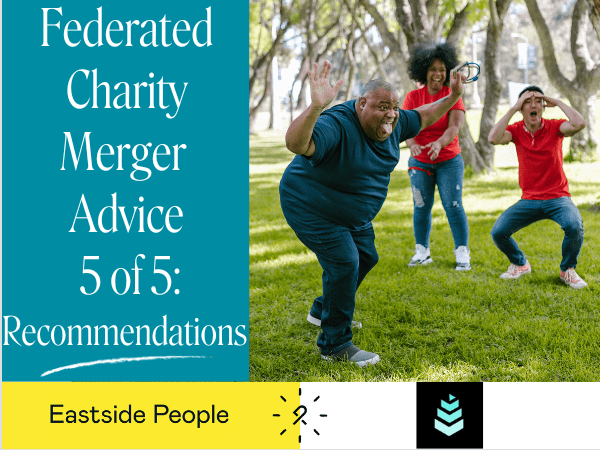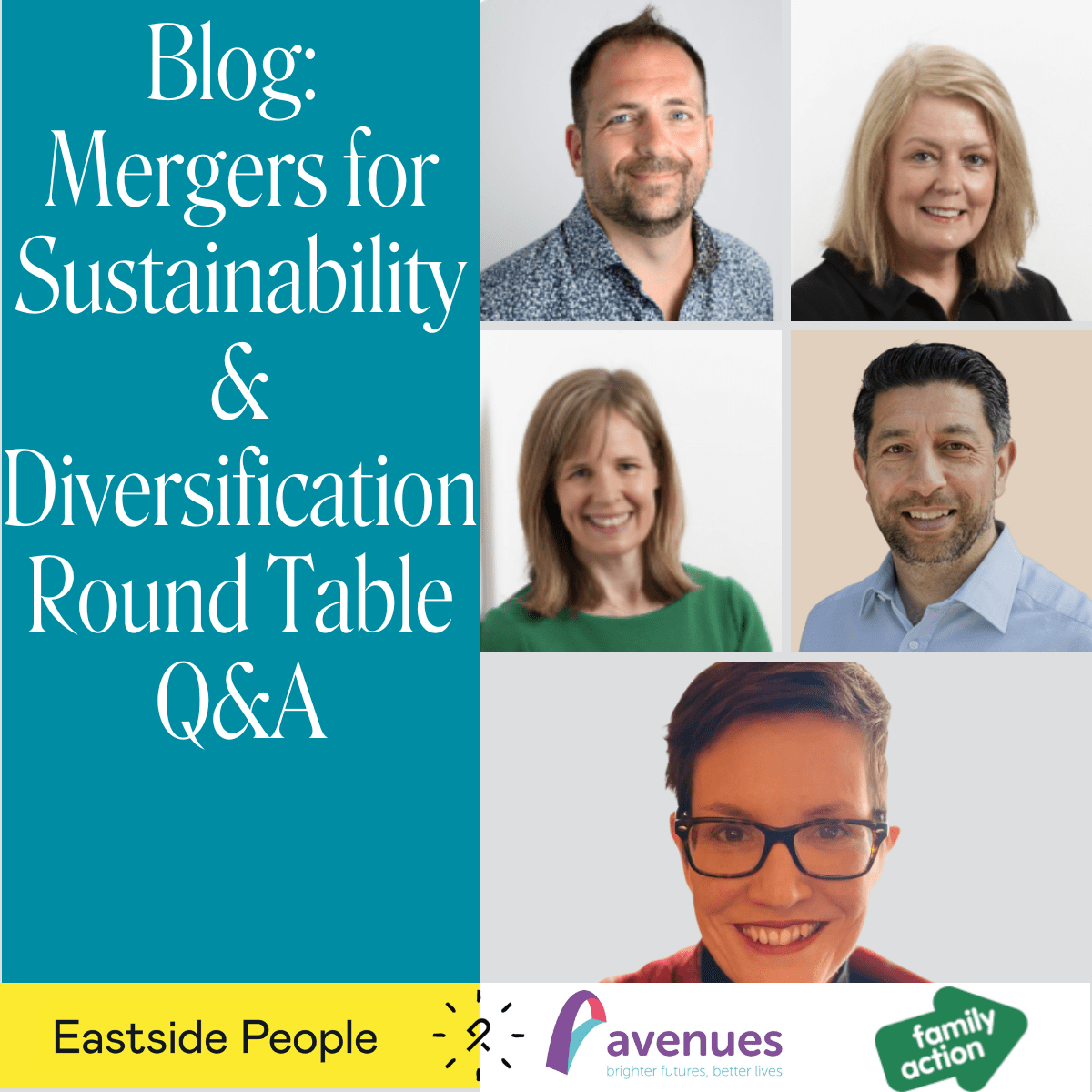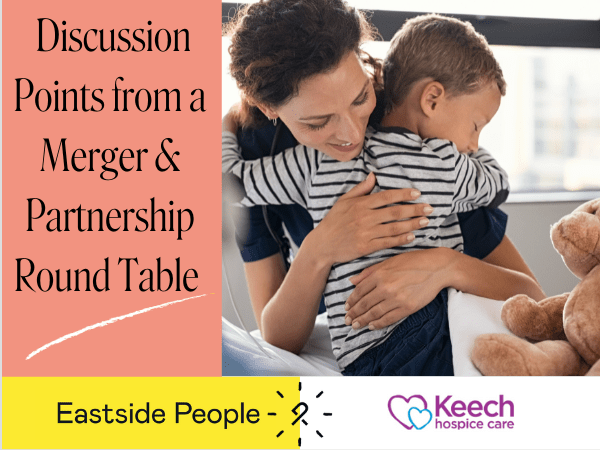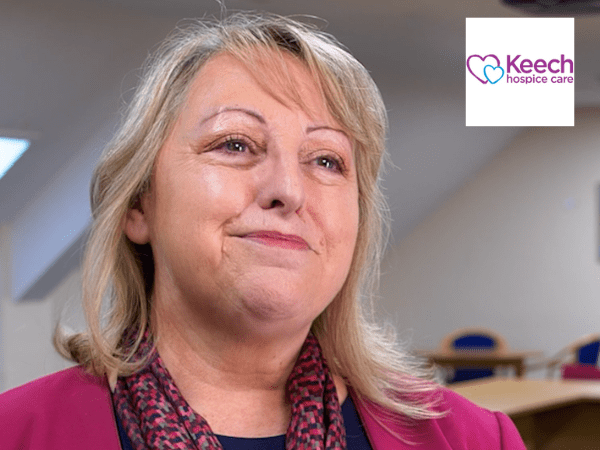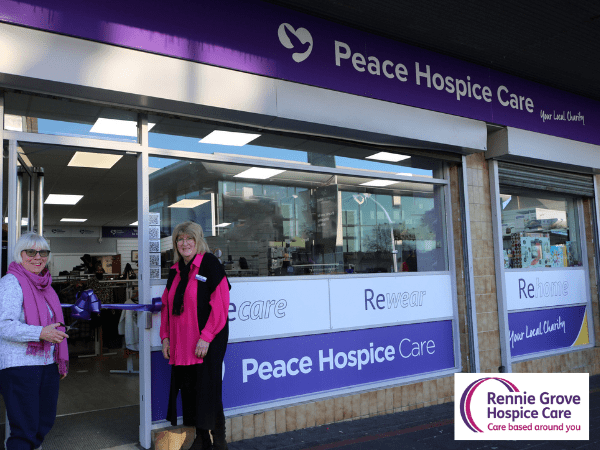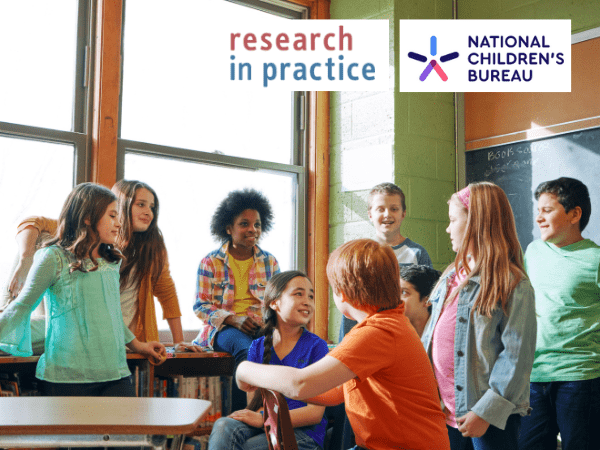Successful mergers can have a transformative effect changing the scale, reach and prospects of an organisation and creating a better deal for the people that rely on a charity’s services.
The Good Merger Guide was created by Eastside People to:
- To highlight the main questions to consider before embarking on a merger
- To provide step by step advice on the three stages of managing a merger.
We have taken some of the best advice and guidance from the Good Merger Guide focussing particularly on the practical and technical aspects of mergers. The 7 articles that make up the set are a must read for anyone in a charitable organisation considering merger as a possible option and wanting to know more about what is involved.
Article 1 of 7: Top 10 Benefits and Reasons for Charity Mergers and Partnerships
In the two decades that Eastside People has been supporting charity mergers, we’ve witnessed a myriad of reasons why organisations consider partnerships and mergers.
Here are the top ten strategic benefits we’ve observed, along with real-world examples of how these objectives have been achieved.
1. Greater Profile and Voice for Campaigns
Merging can amplify an organisation’s impact and reach. When Meningitis Trust and Meningitis UK joined forces to create Meningitis Now, they became the UK’s largest meningitis charity. Similarly, The Mix and MHI combined The Mix’s profile-raising capabilities with MHI’s extensive reach.
2. Economies of Scale and Back-Office Savings
While often cited as a primary motivation, it’s crucial to carefully evaluate potential savings before proceeding. Bedford Hospice and Keech Hospice Care’s merger exemplifies this strategic benefit, but thorough financial analysis is essential to ensure promised savings materialize.
3. Expanded Geographical or Scale Reach
Mergers can rapidly expand an organization’s scope. Community Integrated Care’s merger with Age Exchange provided them with a fully developed research arm, eliminating the need to build one from scratch.
4. Funding Diversity
The partnership between NAViGO and Care for All demonstrates how mergers can open up new funding streams and reduce reliance on single sources of income.
5. Creation of a Continuum of Services
The British Liver Trust and Children’s Liver Disease Foundation merger showcases how organizations can create a seamless support system across age groups, providing comprehensive care from childhood through adulthood.
6. Service Innovation
Mergers can spark creativity and lead to novel approaches in service delivery. The merger between Humankind & Richmond Fellowship to form Waythrough included involving the service users who contributed to the design of the services to be delivered via the merged organisations.
7. Improved Talent Pool
When Addaction merged with Kent Council’s mental health and drug and alcohol support services (now known as We Are With You), they gained access to a broader range of expertise. Mergers can bring in diverse skills and knowledge, enhancing both service offerings and organizational capabilities.
8. Service Improvements for Beneficiaries
For us at Eastside People, we have saved the best for last, for us this will always be the top and main reason to consider a merger. Why else are we working in the wonderful charity sector if not to help the beneficiaries? Just think of the difference that you can make.
Charity mergers can offer multiple strategic benefits, from amplifying voices to improving operational efficiency. Some organisations may find that a merger ticks all these boxes, creating a powerhouse of positive change. However, it’s crucial to approach mergers thoughtfully, with careful planning and analysis to ensure the best outcomes for all stakeholders involved.
9. Spreading Risk
Greater scale can mean that contract and other failures, bear less effect on the whole organisation.
10. An opportunity to re-invent an organisations culture
The formation of a new entity gives space to carry forward positives and reject negatives.
Find out more about our charity and not-for-profit merger and partnership consultancy services.
While the Good Merger Guide is available for download, as this was originally created in 2014, it contains older case studies and references. Please refer to the latest Good Merger Index and our website merger topics section for our latest case studies, blogs, insights and other merger-related content.
Read the other articles in this charity merger series.
























